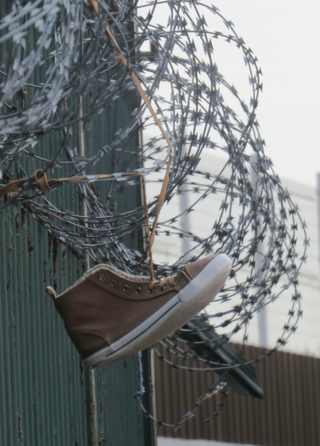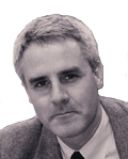Career
World Peace: How Do We Keep Nations from Thermonuclear War?
10 big ideas on peace and justice from the career of Morton Deutsch.
Posted August 10, 2017

Morton Deutsch, eminent psychologist, Columbia University professor, mentor extraordinaire, and one of the founders of the field of conflict resolution, died last March at age 97. Deutsch spent his illustrious career creatively and systematically studying ways to make the world more just and peaceful. He was a tough-minded and tenderhearted scientist with an intense commitment to developing psychological knowledge that would be relevant to important human concerns. In other words, he was deeply theoretical and genuinely practical. He believed in the power of big ideas to improve the world, and in the vital role of science to refine them.
In honor of his passing, I have selected a series of ten major scientific contributions that Deutsch made in his efforts to promote a more just, peaceful and sustainable world. These are by no means his only contributions — there are indeed many more. However these are those I have found as most consequential to my own research and practice, and that I feel are most likely to have the biggest impact on our future. Brief snapshots of each contribution will be presented here in a series of 10 weekly blog posts in approximate chronological order of the questions he studied over his lifetime.
1.World Peace: How to Keep Nations from Engaging in Global Thermonuclear Warfare and Destroying the Planet?
In the mid 1940s, a young Mort Deutsch returned home from World War II a decorated war hero, having navigated over 30 bombing missions over Nazi Germany. Although he considered WWII a just war, he was shocked and disturbed by the devastating impact of the nuclear warheads Americans dropped over civilian populations in Japan. In response, Deutsch joined the noted social psychologist Kurt Lewin’s Research Center for Group Dynamics at MIT as a doctoral student, and soon undertook the development of a highly consequential theory of cooperative and competitive processes in groups. The UN Security Council was just forming at the time, so Deutsch focused his research on identifying the basic conditions that would lead the member states to work with each other to protect the planet from future war and nuclear annihilation, versus those that would lead the nations to work against each other to compete for power and resources, culminating in war.
In order to understand the essence of what moved humans with or against others, Deutsch employed a simple thought experiment. He imagined two feral beings meeting for the first time – two wild, unsocialized creatures with no history of contact and no expectations for their interaction, encountering the likes of the other in a forest. The questions was, what, fundamentally, would move these beings toward, against or away from the other? His answer was: how they saw their fates – their interdependence – linked.
In Lewin’s prior research, he had identified the interdependence of goals of the members as the essence of what determined different types of group dynamics. In Deutsch’s dissertation, he went further to distinguish the different types of interdependence – cooperative or positively linked goals and competitive or negatively linked goals – and then theorized how these differences in perceived goals would affect three basic social-psychological processes in groups (substitutability, or the ability of others’ actions to fulfill your goals, inducibility, or openness to others’ influence, and cathexis, or attitudes towards others) and lead to fundamentally different outcomes.
Ultimately, Deutsch’s research showed that cooperation and competition between people and between groups have profoundly different consequences. Competitive tasks or reward structures induce people to fight for perceived limited resources resulting in the use of tactics of coercion, threat, or deception; attempts to enhance the power differences between oneself and the other; poor communication, minimization of the awareness of similarities in values and increased sensitivity to opposed interests; suspicious and hostile attitudes; and increases the importance, rigidity, and size of the issues in conflict. In contrast, cooperative tasks or reward structures tend to induce a perceived similarity in beliefs and attitudes, a readiness to be helpful, openness in communication, trusting and friendly attitudes, sensitivity to common interests and a de-emphasis of opposed interests, and an orientation to enhancing mutual power rather than power differences (see Deutsch, 1949, 2014). These basic ideas were subsequently validated by a vast canon of empirical studies and have profoundly affected educational and business practices on cooperation and teams, as well as policy-making and statecraft in international affairs.
Deutsch, backed by this evidence base, went on to publicly debate members of the Pro-Mutually Assured Destruction camp during the height of the Cold War, arguing for the critical importance of identifying shared interests and opening communications between the nations in order to reduce tensions. He became one of a small group of psychologists who spoke frequently with officials from the U.S. Departments of State and Defense. In 1961, at the height of the Berlin Crisis (triggered by the Soviet Union’s ultimatum to the Allied powers to leave West Germany), Deutsch helped design and facilitate a high-level meeting devoted to a book co-edited by him in 1962, Preventing World War III: Some proposals. At the meeting, under Deutsch’s direction, the Deputy Soviet Ambassador and the American Undersecretary of State reversed roles, with each arguing for the other’s position. These and other scientifically-informed policy discussions contributed to the lessening of US-Soviet tensions and rapprochement, to the eventual non-violent transition to Democracy in Poland and other Eastern-bloc countries in the 1990s, and continue to have great practical relevance for international peace today.
Mort Deutsch was an intellectual giant with a true moral compass, on whose shoulders many in the fields of peace, conflict and social justice stand today. The foundation he has provided for our work is sound, lasting and ultimately promising and optimistic. His insight, passion and commitment today live on in all of us.
References
Deutsch, M. (1949). An experimental study of the effects of co-operation and competition upon group process. Human relations, 2(3), 199-231.
Deutsch, M. (2014). Cooperation, competition, and conflict. In P. T. Coleman, M. Deutsch, and E. C. Marcus (Eds.), The Handbook of Conflict Resolution: Theory and Practice (pp. 3-28). San Francisco, CA: Jossey-Bass.


